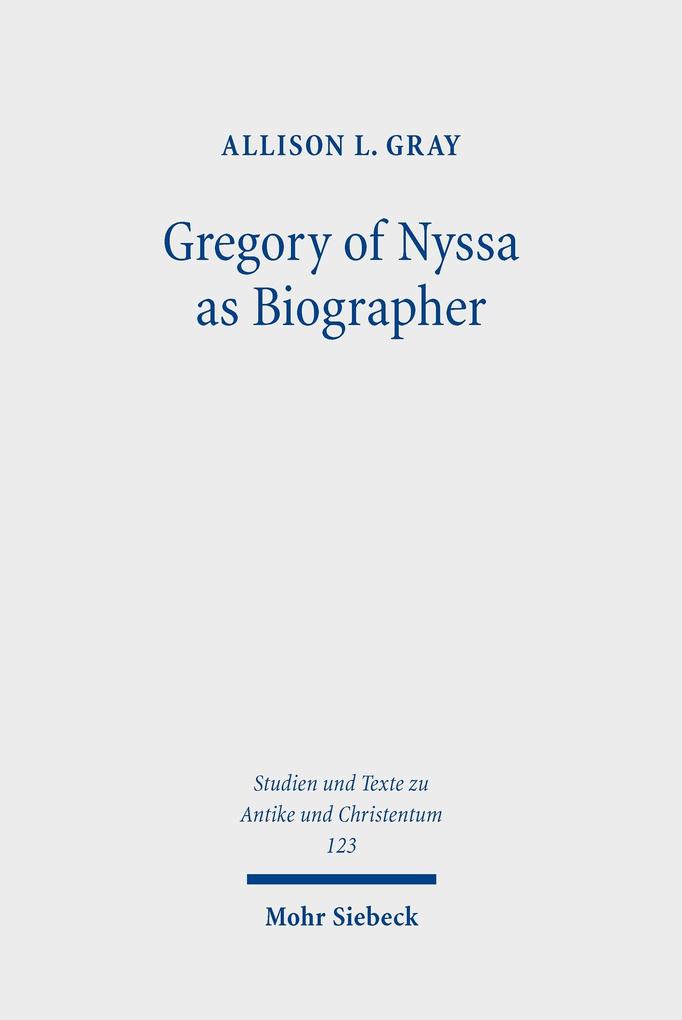
Sofort lieferbar (Download)
In this study, Allison L. Gray analyzes three biographical narratives by the fourth-century Christian theologian Gregory of Nyssa (335-395 CE). When the Life of Moses, the Life of Macrina, and the Life of Gregory Thaumaturgus are examined in light of Greco-Roman rhetoric, biography, hagiography, and the history of education, it becomes evident that Gregory's attention to audience is critical to understanding the texts' form and function. Gregory recounts the lives of exemplary figures to inform his readers about lived virtue while simultaneously preparing them to be skilled readers and interpreters. He adopts and adapts familiar rhetorical and literary techniques to imagine, construct, and teach a new sort of ideal audience, training Christians to interpret Scripture. This study contributes to a more complete picture of how early Christian biographical writing shaped an emerging Christian paideia.
Born 1983; 2016 doctorate in New Testament and Early Christian Literature from the University of Chicago; currently Associate Professor and Graduate Program Director in Theology at St. Mary's University in San Antonio, Texas.
Born 1983; 2016 doctorate in New Testament and Early Christian Literature from the University of Chicago; currently Associate Professor and Graduate Program Director in Theology at St. Mary's University in San Antonio, Texas.
Produktdetails
Erscheinungsdatum
01. Mai 2021
Sprache
englisch
Seitenanzahl
303
Dateigröße
2,45 MB
Reihe
Studien und Texte zu Antike und Christentum /Studies and Texts in Antiquity and Christianity
Autor/Autorin
Allison L. Gray
Verlag/Hersteller
Kopierschutz
mit Adobe-DRM-Kopierschutz
Family Sharing
Ja
Produktart
EBOOK
Dateiformat
PDF
ISBN
9783161575594
Entdecken Sie mehr
Bewertungen
0 Bewertungen
Es wurden noch keine Bewertungen abgegeben. Schreiben Sie die erste Bewertung zu "Gregory of Nyssa as Biographer" und helfen Sie damit anderen bei der Kaufentscheidung.









